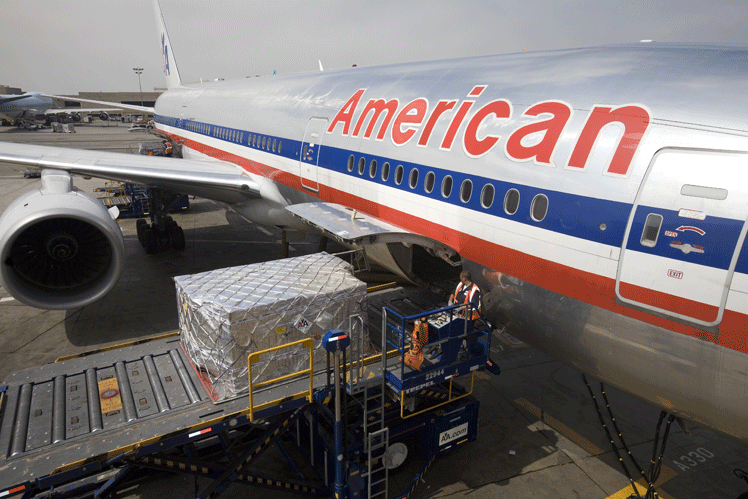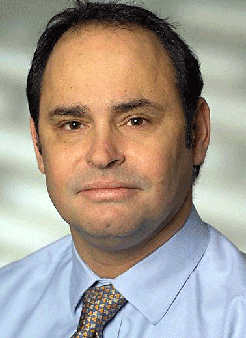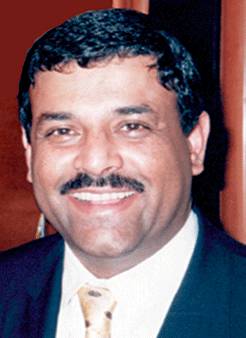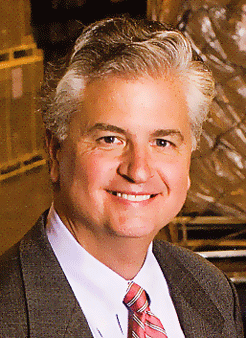Rise
Of Fall In Air Cargo


Russi Batliwala
|

Ram Menen
|

Dave Brooks
|
Dave
Brooks—President American Airlines
Cargo
FT: How
has 2009 been so far?
DB: Business-wise,
awful.
Beginning about a year ago, traffic started
to stall at an accelerating rate. We tried to hold onto already depressed
rates until the 2nd quarter, but then were forced to make very unrewarding
rate adjustments owing to competitor folly and shipper pressure on forwarders.
When it came to pricing, it was equally
painful saying “yes” and it was to say “no.”
FT: What
lies ahead for Q4?
DB: We’ll
see some inventory rebuilding, and some firming where freighters once
were.
But we’re at the mercy of our dumbest
competitor when it comes to pricing and I’m not optimistic we’ll
see rates becoming compensatory this year.
FT: How
does early 2010 look?
DB: We’re
always spooked when the new year’s numbers come in, and I expect
nothing different in 2010.
FT: What
is something(s) AA Cargo has done to weather this business climate?
DB: We’ve
had to close down a number of domestic airport locations and capture
that traffic at lower cost shared trucking facilities.
Customers don’t really see an impact
but we’ve had to lay off nearly 400 employees due to lower freight
volumes.
On a more positive note, we launched a
new temperature controlled product called ExpediteTC which has been
very well-received by the market.
The pharma customer group has shown more
resiliency in this economy so we hope this product will help stabilize
our volumes.

Ram
Menen —Divisional Senior Vice President
Emirates SkyCargo
FT: How
has 2009 been so far?
RM: Given
the economic challenges that the world is going thru, the lesser said
about this year the best!! Our volumes have been quite flat compared
to last year, which is not bad given the circumstance, however, the
revenues are down in double-digit percentage terms.
Excess capacity with lower demand has
created a competitive environment that the air cargo industry…
in fact, the entire transportation industry… has never witnessed
before. Interestingly these challenging times have also clearly established
who our real friends and partners are. I am glad we have more good friends
and partners and we are looking forward to a great future with them
as we come out of these tough times.
FT: What
lies ahead for Q4?
RM: The
markets, so far, have done exactly what we had predicted and we are
seeing some green-shoots, which we hope, will lead to a gradual turn
around. At this stage we are still holding on from getting very excited
and are hoping the current activity is not a short term one. I am a
bit concerned about the current parity of the U.S. Dollar with other
world currencies and the effect it could have on oil prices. Having
said that I am still cautiously optimistic that last Q will be a lot
stronger than last year and it will help us to come closer to parity
after having tracked negative growth worldwide for the last 3Qs.
FT: How
does early 2010 look?
RM: I am
hoping that the recovery process will continue that by 1Q 2010, the
air cargo market will be in positive territory compared to 1Q 2009.
I expect the overall 2010 to be positive on 2009. This will take out
the excess capacity in the market and we can all start seeing sustainable
growth/existence. The worst is definitely over.
FT: What
is something(s) EK Cargo has done to weather this business climate?
RM: Like
everybody else, we have been on a major cost containment programme to
ensure survival thru these difficult times. We have been working closely
with our partners and customers to ensure that the quality of our product
does not suffer in any way. In fact, with all what we have been doing,
our product quality has been at its best ever. This has been achieved
by optimizing efficiencies and productivity, which has also given us
fresh cost efficiencies. We also rationalized our capacity deployment
via reduced freighter operations. All in all, we have taken a long-term
view and managed the short-term challenges as we are determined and
will be there in the future.

Russi
Batliwala—CEO, Chapman Freeborn
FT: How
has 2009 been so far?
RB: 2009
has been difficult but we are keeping our heads above the water.
We have had to cope with reduced volumes,
lower margins and increased global competition. That made the charter
business tougher for us.
FT: What
lies ahead for Q4?
RB: In
air freight charter we see a positive trend in various locations. Transports
from China to Europe are picking up, charter activities in and out of
the U.S. are becoming more satisfying and Europe is getting stronger,
too.
Generally, we do have a positive feeling
for the coming months.
FT: How
does early 2010 look?
RB: Unfortunately
we cannot predict anything at this point.
So far we don’t possess sufficient
indicators for cargo charter demand in 2010.
Therefore, it’s too early to predict
the market environment next year.
FT: What
is something(s) you have done to weather this business climate?
RB: We
increased our creativity even more which led to enhanced tailor-made
solutions for customers in different local market environments. Furthermore,
we stressed our focus on global operations and enlarged our network
by establishing a new station in Uganda’s capital Entebbe to better
cover the African continent.
An office we will set up in Johannesburg,
South Africa soon will complement this.
In addition our Istanbul staff did a remarkable
job by setting a foot into the Central Asian door where we were able
to step up our activities continuously be it in Kazakhstan, Uzbekistan,
Azerbaijan, or Turkmenistan.
Geoffrey/Heiner



